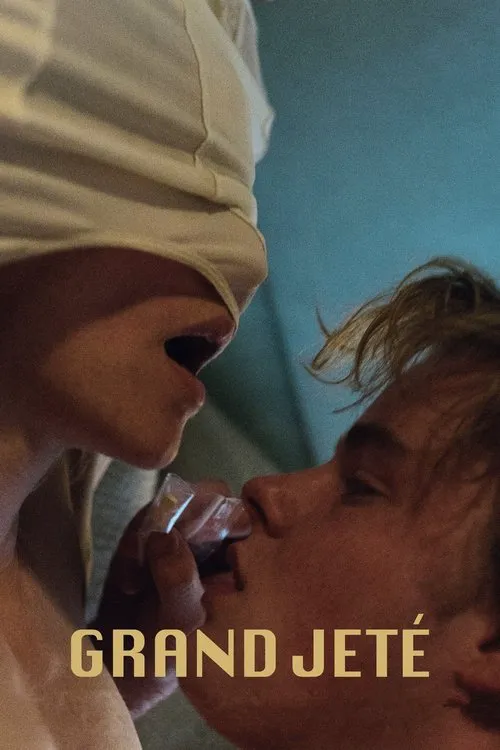Grand Jete

Plot
Grand Jete is a poignant and unflinching exploration of the complexities of family dynamics, relationships, and the blurred lines between love and control. At the heart of the film is Nadja, a determined and passionate dance teacher, who, after abandoning her son Mario at a young age, suddenly reappears in his life, seeking a reunion that will upend their delicate balance. The film's title, Grand Jete, refers to a complex movement in ballet, evoking the idea of a dramatic leap or a moment of transformation. It serves as a fitting metaphor for the tumultuous journey that Nadja and Mario are about to embark, one marked by intense emotional shifts, fraught relationships, and a push-and-pull struggle for control. As Nadja reenters Mario's life, she seeks to fill the void left by her absence, craving a closeness that borders on suffocation. Her motives are complex and multifaceted, driven by a deep-seated need to redeem past mistakes, prove her love, and connect with the child she had to leave behind. However, her methods are fraught with emotional instability, often causing more harm than good. The relationship between Nadja and Mario is a study in contrasts – two individuals bound by blood and yet separated by a chasm of years, misunderstandings, and unspoken resentments. Mario, now a young adult, has forged his own identity, separate from the memories of his mother's abandonment. He is hesitant to reengage, fearful of being hurt again by Nadja's mercurial behavior. As Nadja inserts herself into Mario's life, she disregards his boundaries, encroaching on his relationships and space. Her actions are a manifestation of her own unresolved emotional pain, stemming from the guilt and regret of leaving her child. Her obsessive pursuit of closeness creates an aura of unease, raising questions around the notion of love and its many faces – is it selfless, possessive, or a mix of both? Throughout the film, Nadja's past actions are revealed through a series of flashbacks, shedding light on the emotional turmoil that led her to abandon Mario in the first place. The film humanizes Nadja, showcasing her as a flawed, yet multidimensional character, torn between her maternal instincts and her own needs. However, her portrayal as an unapologetic and sometimes ruthless individual, willing to disrupt Mario's life to pursue her goal, elicits a mix of emotions, from empathy to frustration. As tensions escalate, Mario finds himself torn between his desire to reconnect with his mother and his growing resentment towards her overbearing nature. The relationship becomes a battleground, with both parties grappling with the complexities of love, responsibility, and personal growth. The film takes a nuanced approach to exploring the intricacies of family relationships, acknowledging the imperfections and messiness inherent in human connections. It suggests that families are not neat or tidy structures, but rather dynamic systems of love, pain, and forgiveness. As the narrative unfolds, it becomes clear that Nadja's pursuit of closeness is a cry for validation, a desperate attempt to redeem herself and find a sense of belonging. Her actions are not malicious, but rather a manifestation of her own unresolved emotional demons. Grand Jete is an uncompromising and thought-provoking film that eschews easy answers or tidy resolutions. It presents a messy, realistic portrayal of family relationships, one that is both emotionally resonant and cathartic. Ultimately, the film is a poignant exploration of the human condition, inviting viewers to consider the complexities of love, family, and personal growth.
Reviews
Recommendations




